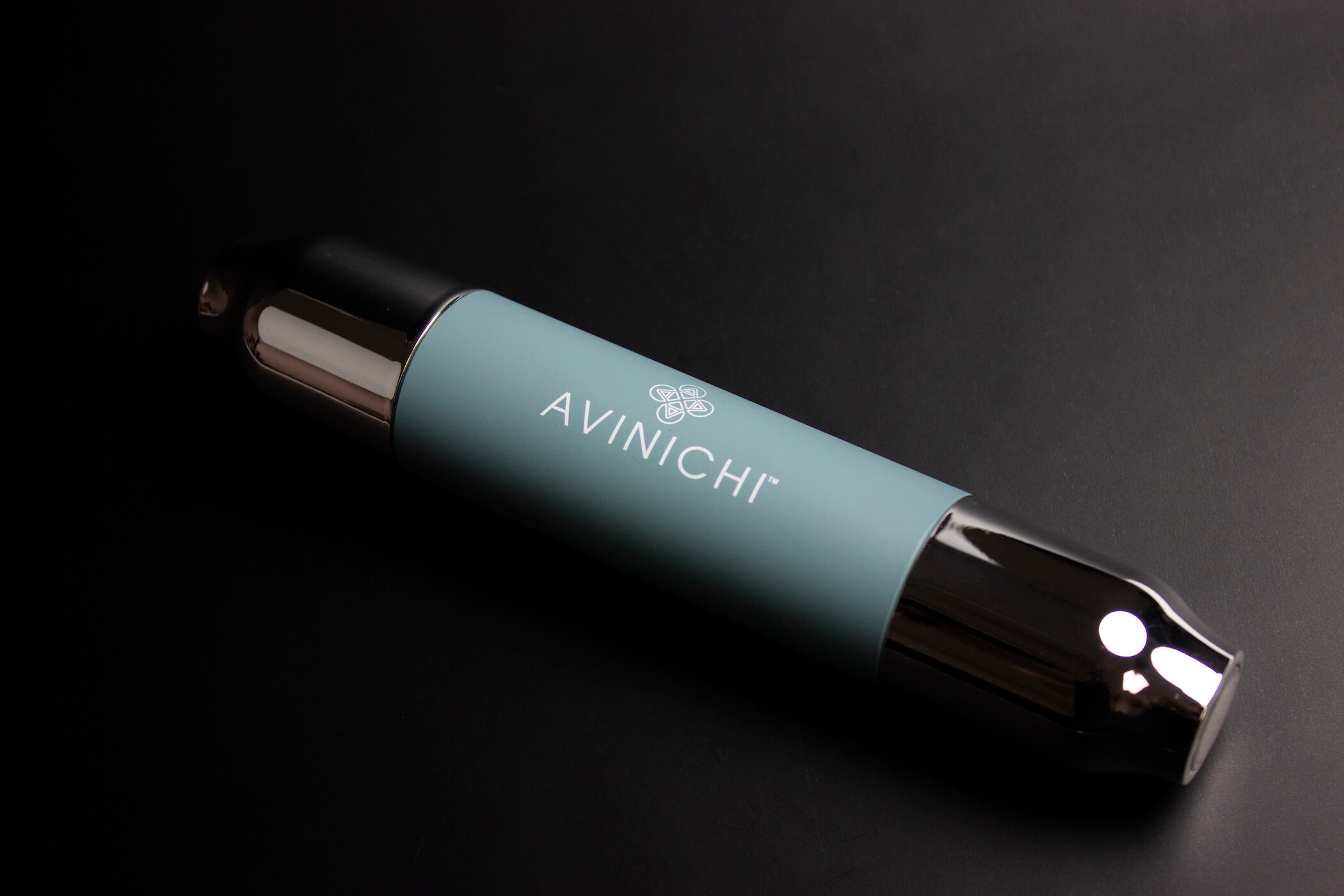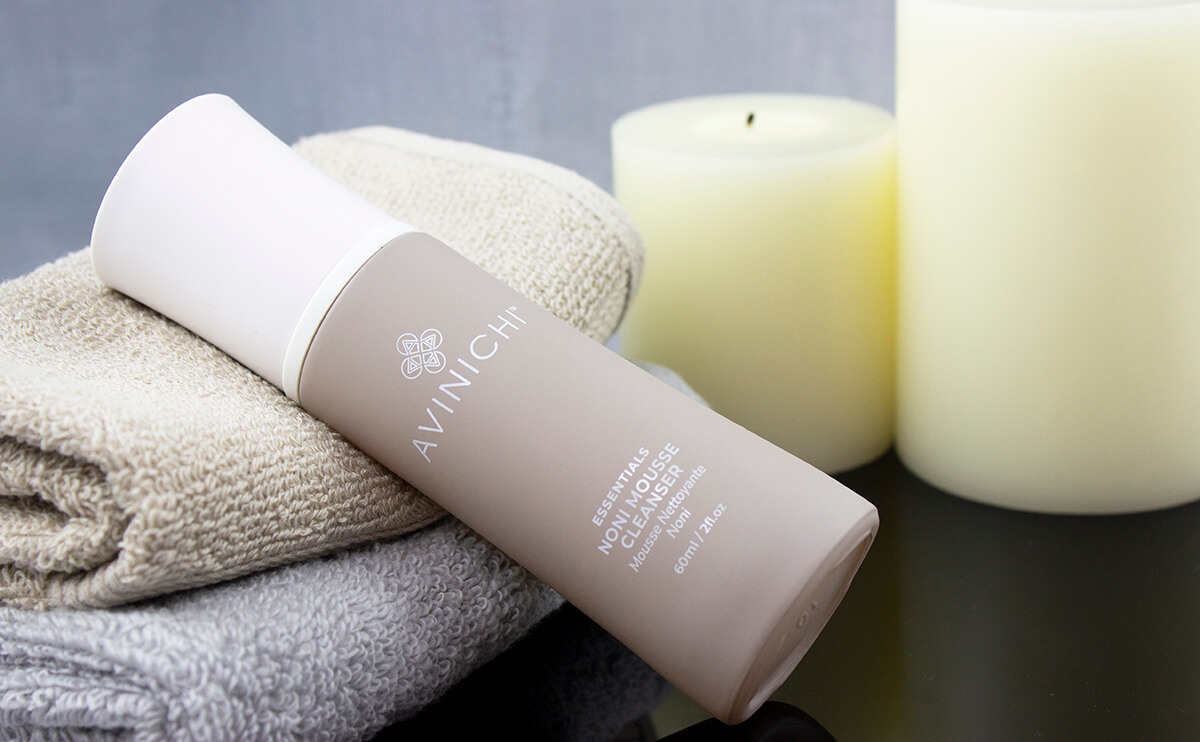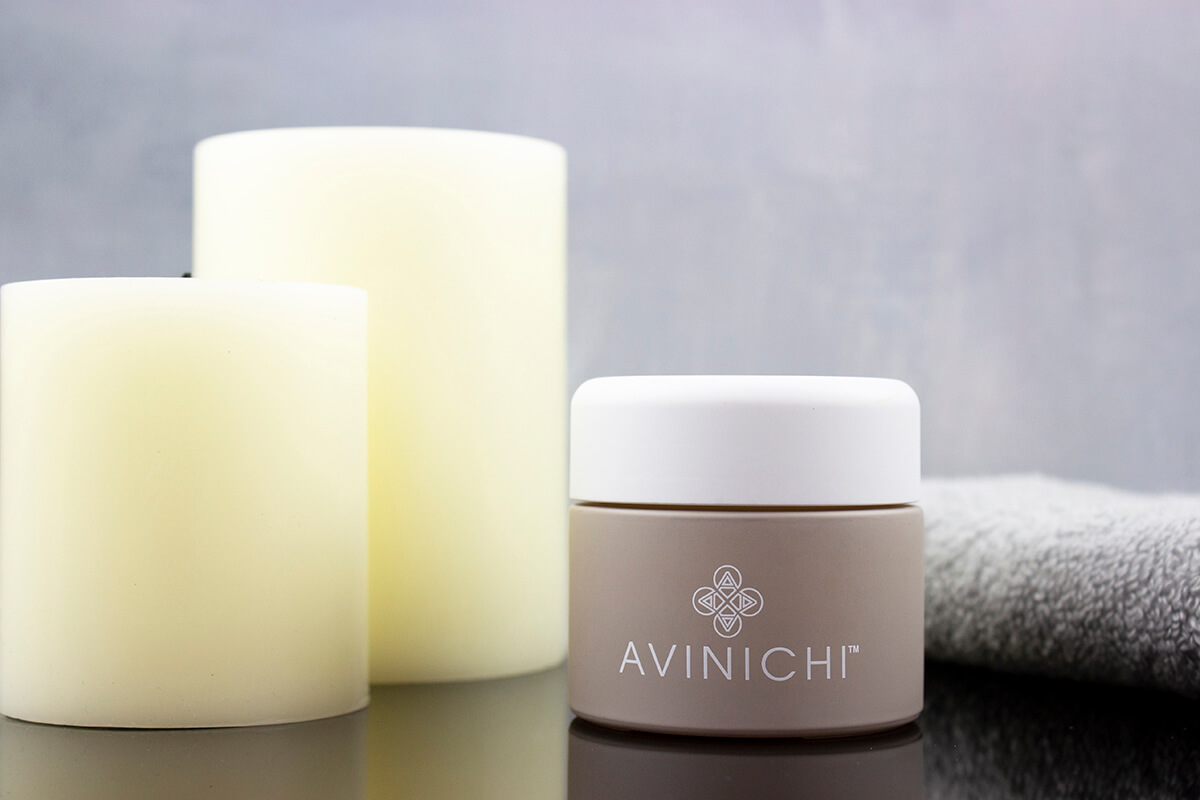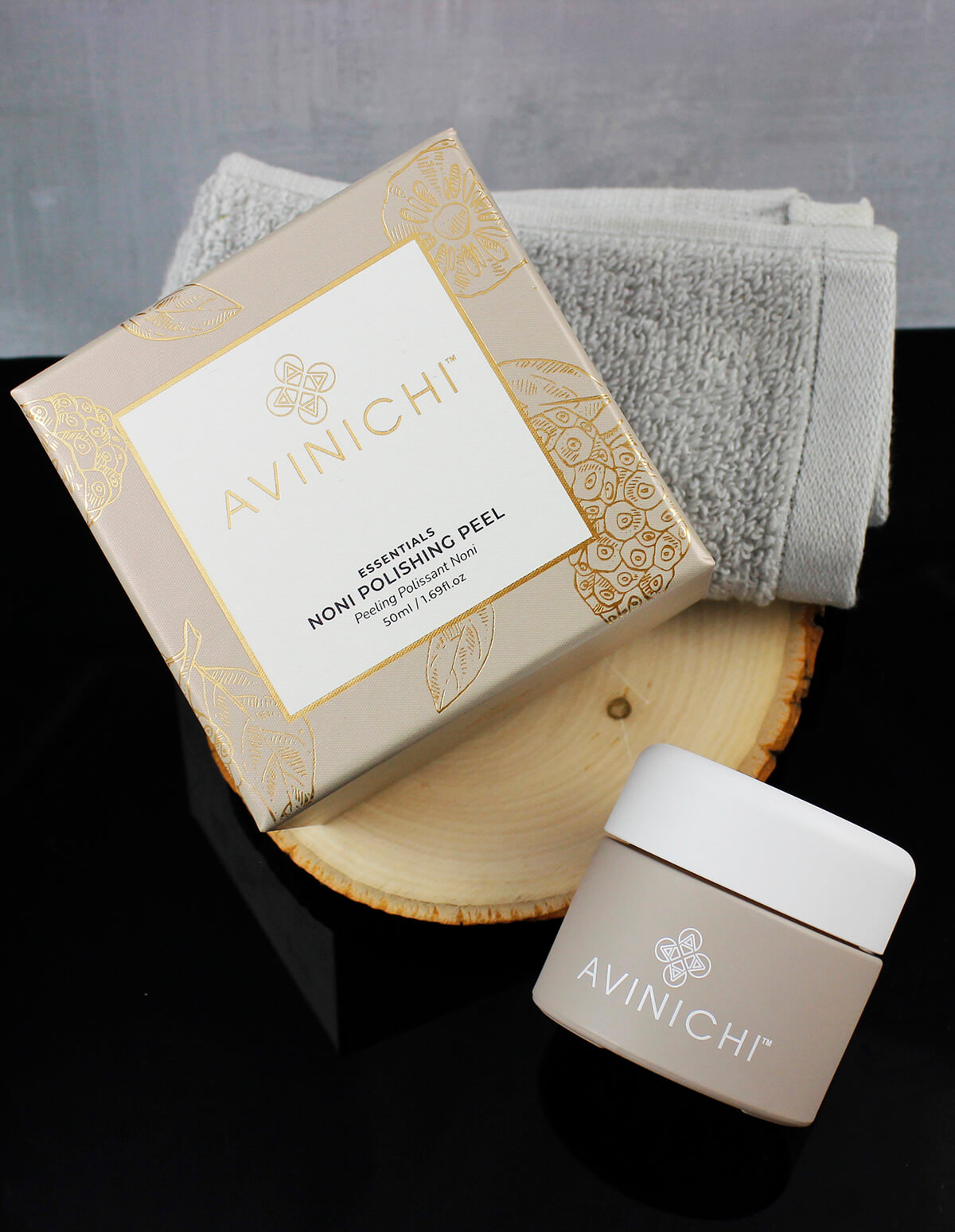Published: February 15, 2024

If a skincare product is available commercially, then this means that it’s safe and doesn’t contain any harmful ingredients…right?
Wrong. Unfortunately, the concept of safety when it comes to skincare depends on the country that you happen to be residing in. For example, there are several cosmetic ingredients that have been approved by the FDA yet are banned in other countries, with parabens being a big one.
Of course, it’s unlikely that your go-to skincare brand is going to be promoting the use of these ingredients. Instead, you’ll likely find them shoved on at the end of an ingredients list in the hopes that consumers don’t notice them.
However, that’s where Avinichi can help. Read on as we explain why parabens have been forbidden in many parts of the world, along with tips on how to choose the best paraben-free formulas for your skin.
What Exactly Are Parabens?
Parabens are a group of ingredients that are used as preservatives. In addition to being formulated into skincare products, they’re also found in everything from food to medications to textiles.
Parabens began to gain popularity in the beauty world in the 1950s. The fact that they’re so inexpensive makes them a popular addition to products designed for the mass market, although many high-end cosmetic brands use them too. They’re extremely effective at limiting the growth of bacteria and fungi, therefore significantly extending the shelf life of a product.
What’s the Problem With Parabens?
So, if parabens are able to preserve your favorite skincare products so that they last longer, what’s the problem? Surely this is a good thing?
It’s true that preservatives most definitely have their place in skincare products. While there are preservative-free formulas out there, they have a very short shelf life. This is something that many people don’t realize. You could end up unknowingly contaminating your skin with bacteria each time you use that product, which would only have a detrimental effect on your complexion.
However, when it comes to the various preservatives that are used in cosmetics, parabens are one that many avoid. Why? Here are a few reasons:
Potential Health Impacts
The debate on whether or not parabens are harmful to human health is still ongoing. There are studies available to back up both sides of the argument, making it tricky to ascertain just how dangerous parabens are.
With that said, there’s no denying the fact that parabens are known endocrine disruptors. This basically means that they can affect the reproductive system for both males and females while also interfering with hormone production.
In women, this can affect breast cells, potentially increasing a woman’s risk of developing breast cancer. In fact, studies have actually found traces of parabens in breast cancer tissue samples. This proves how parabens are able to pass through the skin barrier and have a deeper impact on the body.
Again, there are also several studies showing that parabens don’t contribute to the development of cancer and don’t cause any other health issues either. Many governmental bodies take this stance too. However, with so much uncertainty surrounding the ingredient, many people are now deciding that it’s better to be safe than sorry, especially when there are fantastic alternatives to parabens available. Hopefully, your favorite skincare brand agrees!
Skin Irritation
You may not be able to immediately see the effects that parabens have on your body, but, for many, the way in which their skin reacts when parabens are applied is enough to convince them to stop using these ingredients.
This is down to how parabens can sometimes irritate the skin, causing inflammation that then triggers flare-ups of inflammatory skin conditions, such as acne and psoriasis. While some people will be able to use paraben-infused products without any problems, others will experience the opposite.
Environmental Impact
It’s not just your skin and body that can be negatively affected by parabens – the environment takes a beating from this ingredient too.
With parabens now being such a widely used ingredient, large amounts of it end up in waterways. These compounds have been detected in surface waters, as well as in fish, showing just how widespread the problem has become. Even small amounts of parabens can damage and kill coral, so the huge quantities of it that are now contaminating the waters around us could have a potentially devastating environmental effect.
Does Your Favorite Skincare Brand Use Parabens?
Now that you know more about parabens, you can make an informed decision about whether or not you want to continue using them.
If you decide that you want to cut these preservatives out of your skincare routine, the first step is to ensure that none of the skincare products that you currently use contain these ingredients. There’s a good chance that your favorite skincare brand makes use of parabens, making it worth scrutinizing each product in your routine.
What makes this tricky is that there are several types of parabens out there. Some have been banned but others haven’t. The good news is that all of the different parabens will have ‘paraben’ somewhere in their name, usually at the end. A few common examples include:
- Methylparaben
- Butylparaben
- Isoparaben
- Propylparaben
If your go-to skincare brand produces products containing these ingredients, then it may be time to find a new skincare brand to fall in love with.
Alternatives to Parabens
So, if you’re choosing not to use parabens yet understand how important preservatives are for extending a product’s shelf life and keeping it safe, what are the alternatives?
Potassium Sorbate

Potassium sorbate is a popular paraben alternative. It’s a natural preservative, derived from sorbic acid. This is a compound produced by berries. It’s gentle on the skin yet still does a great job of keeping a product stable.
You’ll find potassium sorbate in several Avinichi products, such as the Alpha Fine Line Surface Filler. It’s joined by phenoxyethanol, an organic compound that also acts as a preservative. Thanks to these two ingredients, this cutting-edge product is paraben-free yet still boasts a long shelf life.
You’ll also find it in our Eye Rescue Phyto Serum, a silky formula designed to hydrate and firm up the look of the skin around the eyes. It’s jam-packed with antioxidants, making a good preservative a must.
Citric Acid

Citric acid is a popular preservative in food products and is often used in skincare too. If your favorite skincare brand makes use of this preservative, you’re onto a winner. Not only does citric acid keep a product stable but it also offers up some beautifying properties of its own.
Citric acid is a natural hydroxy acid, meaning that it has mild exfoliating effects. It evens out the skin tone and brightens the complexion, making it a worthy multi-tasker.
That’s why we turned to the preserving powers of citric acid when formulating several Avinichi products. The Noni Mousse Cleanser, for example, is not only kept safe by citric acid, but the ingredient also enhances the cleansing properties of this product.
You’ll find it in the Noni Pore Purifying Toner too, the perfect formula for using after our cleanser. It highlights the astringent effects that citric acid has, rejuvenating the look of the skin while shrinking the appearance of large pores.
Vitamin E

Vitamin E is another multi-tasker. Most people know it as an ingredient that moisturizes the skin and keeps the skin barrier feeling strong and supple. It’s revered for how it soothes the feeling of inflammation too, keeping the complexion balanced and healthy.
All of that is true, but vitamin E has another quality to it that isn’t as often talked about. Although it’s not technically classed as a preservative, it’s an antioxidant. This means that it’s great for preventing the spoilage of natural oils.
This is why you’ll find both tocopheryl acetate and tocopherol in the Avinichi Noni Night Repair Cream. By incorporating two forms of vitamin E, we’re able to prolong the stability of the botanical oils in this product.
Ethylexylglycerin

Although ethylexylglycerin may have a technical-sounding name, it’s not an ingredient to be afraid of. Instead, it provdes an array of benefits. Not only does it act as a mild preservative, but it also conditions the skin. It has both humectant and emollient properties, enabling it to bind moisture to the skin while also softening and strengthening the complexion.
This is another preservative that you’ll find in several Avinichi products, with the Noni Polishing Peel being one. This is our bestselling exfoliator, with its ingredient lineup featuring the likes of mandelic acid, bamboo powder, ascorbic acid, and noni fruit extract. It’s full of potent compounds, which the ethylexyglycerin helps to keep safe!
Should You Go Paraben-Free With Your Skincare?
So, when it comes down to it, do you really need to go paraben-free with your skincare?
In the end, that’s up to you. As mentioned, there are studies backing up both sides of the debate, making it difficult to ascertain how dangerous these ingredients really are. More evidence is needed before a conclusion can be drawn.
With that said, when it comes to your skin and your health, why risk it? As you can see from all of the paraben alternatives out there, every skincare brand has plenty of other options that they can turn to instead. Sure, they may cost more than using parabens, but, fortunately, this is a move that more and more brands are now taking.
If you’re tired of scouring for parabens on the ingredient list of every product you’re considering purchasing, make life easier for yourself by finding a few companies that have committed to creating paraben-free formulas. Avinichi is a skincare brand that has done just that. All of our products are free of parabens, meaning that you won’t have to worry about any potential health impacts that your skincare may have.
Want to check out more of Avinichi’s paraben-free skincare products? Click here to browse our bestsellers!
